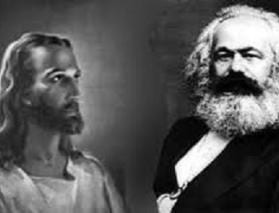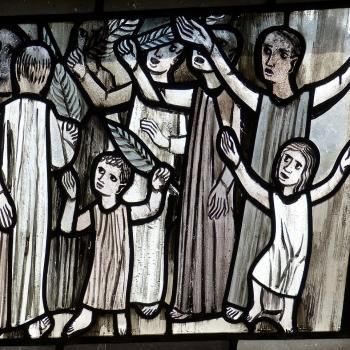I almost never give up on a book half-way through; I was reminded not long ago of why this is a good habit to have developed. I was deep into a book that I should have loved. Patrick Henry (a descendant of that Patrick Henry of “Give me liberty or give me death!” fame),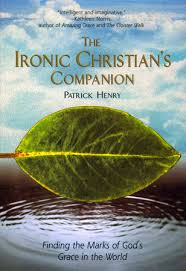 the author of The Ironic Christian’s Companion, is a historian of religion and the former director of the ecumenical institute where I spent a sabbatical semester in 2009. But I was struggling with the book. I liked most of the author’s ideas, but not his writing style, the haphazard organization of the book, or what seemed to me a minor case of his being a bit too full of himself (it takes one to know one). I had not dipped into it for a week or so, and decided to give it one more go. I’m glad I did, because the next chapter resonated on several levels, beginning with perhaps the most famous claim in the history of Western philosophy.
the author of The Ironic Christian’s Companion, is a historian of religion and the former director of the ecumenical institute where I spent a sabbatical semester in 2009. But I was struggling with the book. I liked most of the author’s ideas, but not his writing style, the haphazard organization of the book, or what seemed to me a minor case of his being a bit too full of himself (it takes one to know one). I had not dipped into it for a week or so, and decided to give it one more go. I’m glad I did, because the next chapter resonated on several levels, beginning with perhaps the most famous claim in the history of Western philosophy.
“I think, therefore I am”—it is not much of an oversimplification to say that with this single sentence Descartes rewrote the playbook for Western philosophy and set Western philosophy and science on a path that it has taken more than four centuries to begin steering away from. The subjective turn, the insistence on certainty that begins with me, the dualism that separates mind from body as well as intellect from emotion—the list of thorny philosophical problems traceable back to Rene Descartes goes on and on.  I am very familiar with Descartes—I wrote my dissertation on his moral philosophy in which he struggles mightily with the problem of how the solipsistic individual mind that is the center of his metaphysics is to live her or his life in a world that sharply distinguishes neither between mind and body nor between the autonomous self and the billions of other such selves on earth. Patrick Henry, a dedicated academic with a powerful intellect, writes that
I am very familiar with Descartes—I wrote my dissertation on his moral philosophy in which he struggles mightily with the problem of how the solipsistic individual mind that is the center of his metaphysics is to live her or his life in a world that sharply distinguishes neither between mind and body nor between the autonomous self and the billions of other such selves on earth. Patrick Henry, a dedicated academic with a powerful intellect, writes that
When I used Descartes, as elaborated by a whole intellectual and academic culture, as my guide, I got the world wrong. I have spent much of my life trying to unlearn Descartes’ lesson.
Long before I went to graduate school, a theologian friend of my father’s once told me that the darkest day in the history of Western civilization was the day that Descartes shut himself alone in a stove-heated room and began to think. I didn’t know what he meant then, but I do now—and so does Patrick Henry.
Philosophical puzzles and problems aside, the real problem arising from the vision of reality that Descartes creates is that it closes each of us off from each other and establishes the autonomous human individual as the measure of what is true and real. 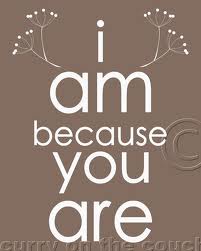 Patrick Henry writes that he began to break free from Descartes’ hold when a friend from Kenya told him that “in Africa, we say I am because you are.” My existence is not self-defined; I cannot start from scratch and it is no accident that each of us finds ourselves surrounded by other human beings. We define ourselves not in the solipsistic privacy of our individual minds, but through interaction with others. This is a difficult thing for academics to learn; some of us never do. Trying to get academics to do anything collectively is often referred to as similar to trying to herd cats; it’s actually a lot more difficult than that. My years of chairing a large academic department, then directing an even larger academic program, revealed that trying to organize academics is like trying to herd cats when each of the cats has a PhD and truly believes it is the smartest cat in the room. The chances of creating an academic community when each individual in the community trusts her or his own intellect more than what might be learned from others are very small.
Patrick Henry writes that he began to break free from Descartes’ hold when a friend from Kenya told him that “in Africa, we say I am because you are.” My existence is not self-defined; I cannot start from scratch and it is no accident that each of us finds ourselves surrounded by other human beings. We define ourselves not in the solipsistic privacy of our individual minds, but through interaction with others. This is a difficult thing for academics to learn; some of us never do. Trying to get academics to do anything collectively is often referred to as similar to trying to herd cats; it’s actually a lot more difficult than that. My years of chairing a large academic department, then directing an even larger academic program, revealed that trying to organize academics is like trying to herd cats when each of the cats has a PhD and truly believes it is the smartest cat in the room. The chances of creating an academic community when each individual in the community trusts her or his own intellect more than what might be learned from others are very small.
My own academic department has recently been a prime example of what can happen when a group of very smart people over time becomes convinced that they have little or nothing to learn from each other, unless they already happen to largely agree with the others in question. My department is large as philosophy departments go; the very idea of more than twenty philosophers occupying the same space might be enough to cause normal people to despair.  But for the first fifteen or so of the twenty-three years I have been a member of this department, we argued, challenged each other, took contrary positions, but were also mutually supportive and largely managed both to get along and learn from each other. For a host of reasons—more than I can even remember—this began to change several years ago.
But for the first fifteen or so of the twenty-three years I have been a member of this department, we argued, challenged each other, took contrary positions, but were also mutually supportive and largely managed both to get along and learn from each other. For a host of reasons—more than I can even remember—this began to change several years ago.
Factions began to form, suspicion replaced trust, posturing replaced dialogue, and ideology replaced the pursuit of truth. After a few years of this poisonous brew stewing, we have come to the point where there is little conversation in the halls other than between people who know they all agree, no benefits of a doubt were given for months, the administration and lawyers became involved, and our dysfunction made us the laughing-stock of the campus. Although I would love to think that I am the only person in the department who can listen to and communicate with all sides, I know this not to be the case. I am just as likely as anyone else to roll my eyes when certain colleagues raise their hand in a meeting before they even open their mouths, because I “know” that I will entirely disagree with what they say and since I “know” there is nothing I could possibly learn from this person; I have no doubt some of my colleagues have the same reaction when I raise my hand. 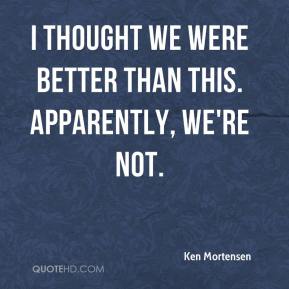 During the worst of it, a junior colleague said to me at lunch “But we’re above all this!” And indeed we should be, but sadly we are not.
During the worst of it, a junior colleague said to me at lunch “But we’re above all this!” And indeed we should be, but sadly we are not.
Patrick Henry tells a story of how a botched prayer unexpectedly provided an insight into why no one person’s or group’s intellectual commitments can possibly serve as a foundation for truth. Once when offering grace before a meal, Henry’s mother-in-law recited a well-known prayer that ends with asking God to “make us ever mindful of the needs of others.” Except that this time she closed the prayer with make us ever needful of the minds of others. I don’t think I’ve ever read a better counter to Descartes’ claim that my own activity of thought is sufficient to establish my identity. As Henry develops in the following pages, I (and each of us) need the minds of others because I cannot know enough, what I do know is distorted, my ways of knowing are different from the ways of others, and I can easily fool myself. Only through constant engagement with others, not in order to prove oneself right but rather in order to truly come to knowledge together, can a true community be formed.
I am continually reminded of this through regular seminars I conduct with friends and fellow travelers once a month after the morning service at  the Episcopal church I attend. I am the “professor” in the group and we use one of my recent blog essays as a jumping-off point for conversation each month. Yet I have learned far more about faith and life itself from the members of this group than they could learn from me in a million years. Each of us has developed not only trust in each other but reliance upon each other, because each of us knows that we are needful of each other’s minds, hearts, and experiences. Whether the situation in my department can be turned around or even salvaged, I do not know. But I do know that if there is any hope for improvement, it might begin with each of us taping on our bathroom mirrors and computer screens what Patrick Henry learned from his African friend: I Am Because You Are. Even if we don’t particularly like each other.
the Episcopal church I attend. I am the “professor” in the group and we use one of my recent blog essays as a jumping-off point for conversation each month. Yet I have learned far more about faith and life itself from the members of this group than they could learn from me in a million years. Each of us has developed not only trust in each other but reliance upon each other, because each of us knows that we are needful of each other’s minds, hearts, and experiences. Whether the situation in my department can be turned around or even salvaged, I do not know. But I do know that if there is any hope for improvement, it might begin with each of us taping on our bathroom mirrors and computer screens what Patrick Henry learned from his African friend: I Am Because You Are. Even if we don’t particularly like each other.








